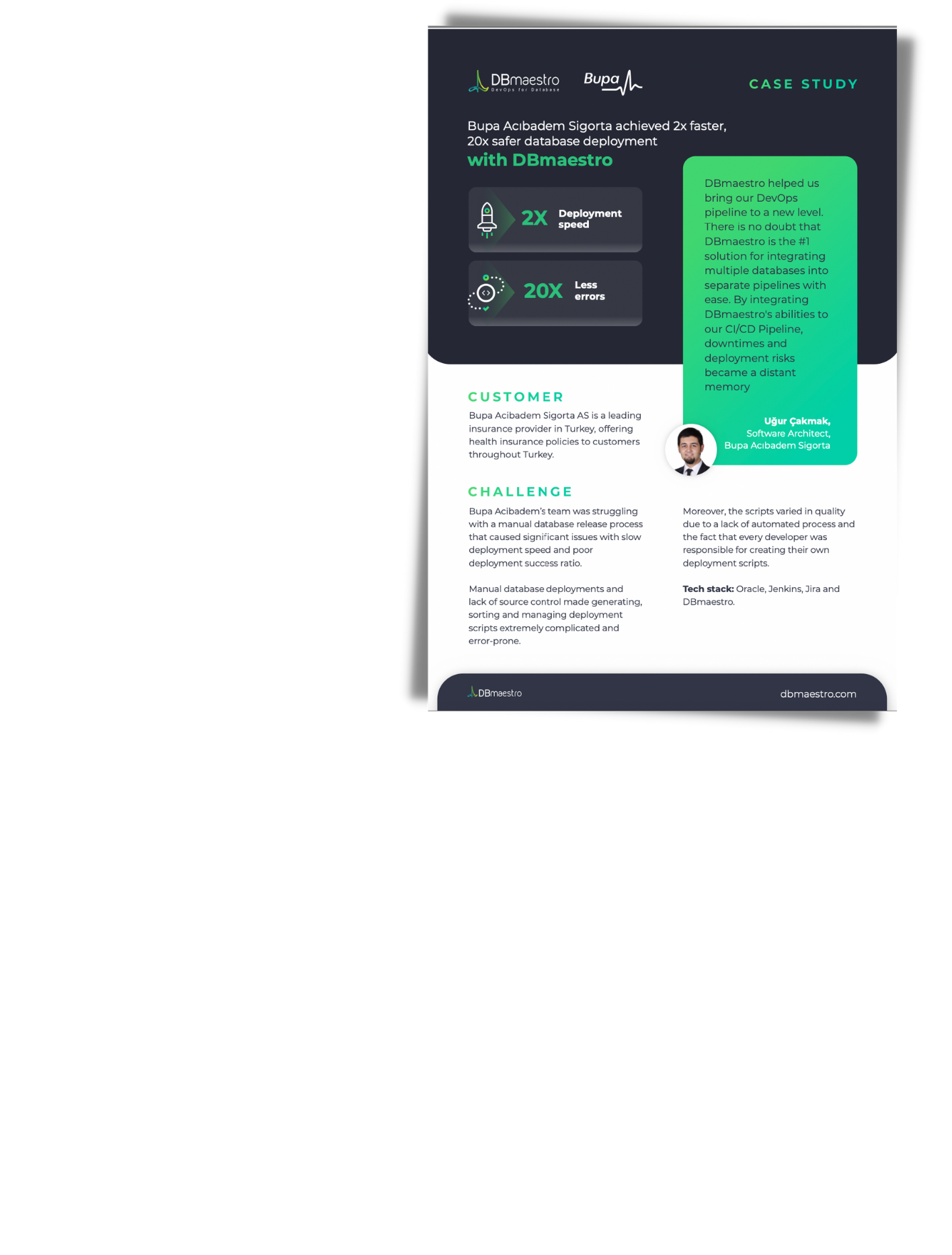What is the first thing that pops into your mind when thinking about database administrator (DBA)?
A database administrator (DBA) is the information technician responsible for directing or performing all activities to maintain a successful database environment. This certainly locks and narrows the view to a geek sitting in a dark room reviewing a zillion lines of database-related code (SQL, Python, etc.). It’s so untrue! The DBA makes sure an organization’s database and related applications operate functionally, efficiently,and securely, directly impacting the day-to-day business rollout.
Agility plays a meaningful role in beating the competitiveness out.
Deploying new features to customers and the ecosystem quickly, safely, and reliably makes differentiation apparent. The most efficient company can deliver value to its data-consuming endpoints which re-defines the winners. And yet… over 50% of DBA time is still consumed day and night on code reviews. Data officers should seek ways to free DBAs from these heavy loaded tasks and optimize their use of time, for higher value and outstanding projects.
It’s not only about time consumption.
How many hours a day, can someone consecutively review code without missing anything? Making mistakes is human, and production-related mistakes are costly to an organizational perspective. What about the quality of the code? Are the DBA’s skills being equally distributed throughout the DBA team? Of course not.
Conclusion
The endgame. The developer submits a change code request, and now he waits for the DBA to review and provide feedback, which is a classic scenario for creating a bottleneck. The picture is more precise; database release automation accelerates DBA’s productivity, freeing them from the manual code reviews and optimizing their time. The benefits for the organization are enormous: putting release time on steroids, fastest value to the eco-system, superior competitiveness, and direct improvement on the business bottom-line.






